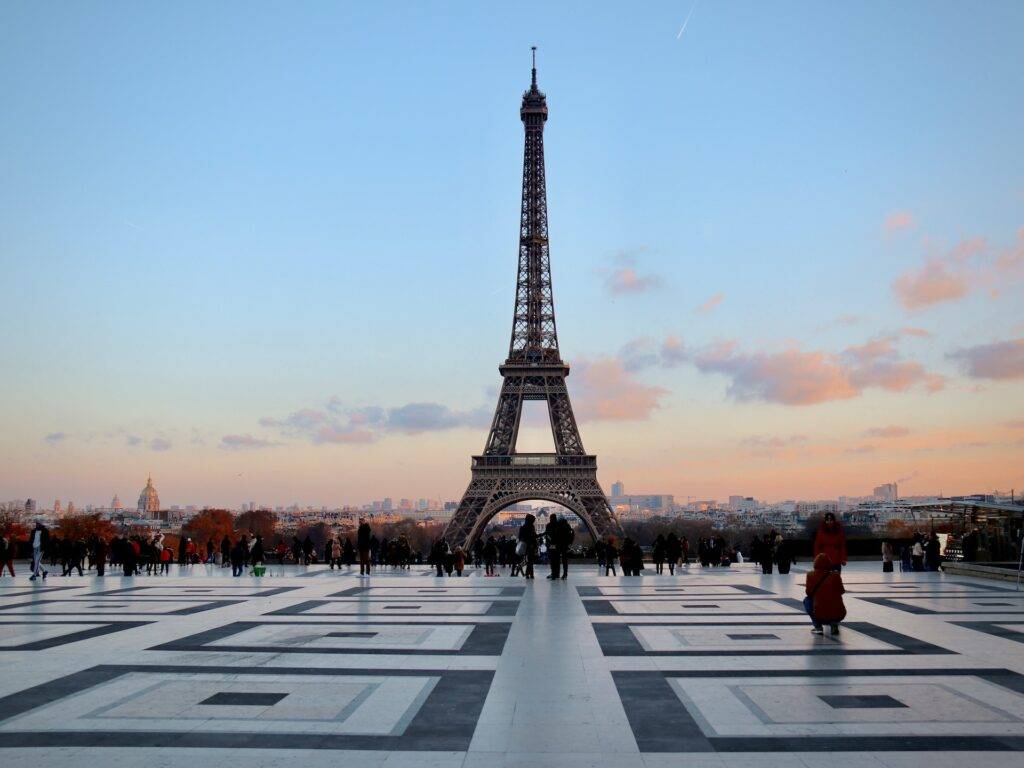
France, known for its breathtaking landscapes, rich history, and enticing cuisine, holds a charm that attracts thousands of American expats to its captivating shores, vibrant cities, and idyllic countryside. As diverse and sprawling as the country may be, finding the perfect French region to call home is essential for experiencing the quintessential French lifestyle. With such a vast array of locations on offer, each featuring its distinct culture and attractions, selecting the ideal region may seem overwhelming. This informative guide will illuminate the charms, challenges, and characteristics of France’s diverse regions, providing insights to help you find the perfect fit for your personal tastes and lifestyle needs.
In this comprehensive regional guide for American expats, we explore everything from bustling coastal towns and picturesque rural villages to dynamic urban centers, showcasing the unique features that make each region worth considering as your new home. As you progress through this guide, you’ll discover the distinct climate, language, cuisine, and culture that sets each French location apart. With our expert assistance, you’ll gain valuable insights into the nuances of each region, enabling you to make an informed decision as you embark on your exciting journey as an American expat in France.
1. Paris and the Île-de-France Region: Urban Sophistication and Rich History
For those who gravitate towards cosmopolitan life and world-class amenities, Paris and the surrounding Île-de-France region offer unparalleled cultural and historical experiences. As the economic and political center of France, the region features iconic landmarks such as the Eiffel Tower and Notre-Dame Cathedral. With its vibrant nightlife, exquisite cuisine, and unparalleled arts scene, Paris is often the dream destination for American expats seeking excitement and sophistication.
Pros:
- Culture, art, fashion, and music scenes
- Excellent public transportation and connectivity
- Professional opportunities in various industries
Cons:
- High cost of living
- Traffic congestion and pollution
- Competitive housing market
2. Provence-Alpes-Côte d’Azur: Coastal Luxury and Captivating Landscapes
With its stunning Mediterranean coastline, sun-soaked beaches, and lavender-filled countryside, the Provence-Alpes-Côte d’Azur region offers a perfect blend of natural beauty, stylish living, and luxurious experiences. From the glamorous cities of Cannes and Nice to the breathtaking Calanques National Park, the region’s abundant attractions make it an idyllic destination for American expats seeking relaxation, culture, and outdoor pursuits.
Pros:
- Diverse landscapes: mountains, coastlines, and countryside
- Rich history and distinct Provençal culture
- Mild Mediterranean climate
Cons:
- Expensive cost of living in popular coastal cities
- Tourist congestion during peak seasons
- Limited public transportation outside of urban areas
3. Occitanie: Old World Charm and Diverse Appeal
Boasting a landscape as varied as its cultural heritage, the Occitanie region captivates those seeking a taste of traditional French living. Spanning from the sunny Mediterranean coast to the Pyrénées mountain range, the region offers picturesque towns, historic cities like Toulouse and Montpellier, and vast rural expanses that cater to various lifestyle preferences.
Pros:
- Affordable housing options
- Diverse leisure activities: beaches, mountains, and wine-tasting
- Mix of urban centers and countryside living
Cons:
- Slower pace of life in rural areas may not suit all expats
- Limited job opportunities outside of larger cities
- Seasonal temperature fluctuations and occasional heatwaves
4. Brittany and Normandy: Coastal Beauty and Celtic Spirit
Rich in historical significance and Celtic heritage, the regions of Brittany and Normandy offer American expats a unique French experience characterized by dramatic coastlines, ancient towns, and lush countryside. Home to iconic landmarks such as Mont Saint-Michel and the D-Day beaches, these regions offer history enthusiasts a fascinating living experience, while the rugged Breton coast appeals to nature lovers and seafaring enthusiasts.
Pros:
- Picturesque landscapes and historic towns
- Agreeable maritime climate
- Lower cost of living
Cons:
- Frequent rainfall and changeable weather
- Limited professional opportunities
- Potential language barriers with local Breton or Norman dialects
5. Auvergne-Rhône-Alpes: Marvels of Nature
Situated in the eastern part of the country, Auvergne-Rhône-Alpes is an amalgamation of natural wonders, thriving cities, and quaint towns. It boasts world-class ski resorts, picturesque vineyards, and stunning landscapes that include parts of the Alps and Central Massif.
Pros:
- The region is perfect for nature lovers with plenty of opportunities for hiking, skiing, and cycling.
- Auvergne-Rhône-Alpes is home to several top-ranking universities, making it an ideal location for those looking to study.
- The region has a strong economy with a low unemployment rate.
Cons:
- The cost of living can be high, especially in popular cities like Lyon and Grenoble.
- The region’s popularity with tourists can make it crowded during peak seasons.
6. Pays de la Loire: Captivating Coasts and Countrysides
Pays de la Loire is an attractive proposition for American expats seeking a coastal life. This region offers an impressive coastline, beautiful countryside, and historical cities like Nantes and Angers.
Pros:
- The region offers beautiful coastal towns and beaches, providing a relaxed lifestyle.
- Pays de la Loire is home to several castles and historical sites.
- The region is famous for its vineyards and wine production.
Cons:
- The region gets quite crowded during the summer due to tourism.
- Compared to the larger cities, job opportunities might be limited in some parts of the region.
7. Nouvelle-Aquitaine: Wonders and Wine
Nouvelle-Aquitaine, France’s largest region, offers a diverse range of landscapes from the Pyrenees mountains to the Atlantic coastline. Its capital, Bordeaux, is a UNESCO World Heritage site and a renowned wine-growing region.
Pros:
- The region is known for its beautiful landscapes, including the Dordogne river and Pyrenees mountains.
- Nouvelle-Aquitaine generally has a pleasant climate with warm summers and mild winters.
- The region is home to Bordeaux, one of the most renowned wine-producing areas in the world.
Cons:
- The region is quite large, making it time-consuming to travel from one area to another.
- Some parts of the region can be quite rural with limited amenities.
8. Corsica (Corse): A Quiet Island Life
Known as the “Island of Beauty,” Corsica offers a unique mix of French and Italian cultures. This Mediterranean island is famous for its stunning beaches, rugged mountains, and charming villages. Corsica’s slower pace of life can be a major draw for those seeking tranquillity and a break from the hustle and bustle.
Pros:
- Corsica is an island known for its stunning landscapes, including mountains, beaches, and forests.
- Corsica has a unique blend of French and Italian culture.
- The area is perfect for outdoor activities such as hiking, swimming, and boating.
Cons:
- Being an island, Corsica can feel isolated from the mainland.
- The cost of living can be high, especially during the tourist season.
Conclusion
Each French region carries a distinct charm and allure, catering to a variety of lifestyle preferences and aspirations for American expats. By exploring these diverse regions and understanding the unique characteristics of each, you can make an informed decision about the ideal location for your expat life in France. With the assistance of French Connections HCB, you’ll have expert support in navigating the complexities of French bureaucracy, ensuring a smooth and enjoyable transition to your new French home. Reach out to us today to learn more about our relocation assistance program. Let us help you embark on a life-changing adventure in the French region that truly resonates with your heart and soul.


